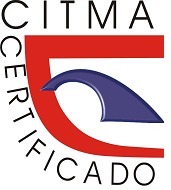Hacia la democratización del aprendizaje de máquinas
Palabras clave:
Apprendizaje de máquinas, aprendizaje automatizado, AutoML, inteligencia artificialResumen
El Aprendizaje Automático es un campo de la Inteligencia Artificial que ha ganado un reciente interés en todas las áreas de la industria, motivado fundamentalmente por el acelerado crecimiento de las capacidades de cómputo y la disponibilidad de datos. Sin embargo, una de las principales dificultades para su aplicación es la necesidad de expertos que conozcan los detalles internos de los múltiples modelos que pueden ser utilizados. En este contexto ha surgido un nuevo campo de estudio, denominado AutoML (Automated Machine Learning), que facilita la utilización de estas técnicas por expertos de otros dominios. Este artículo presenta una introducción al campo del AutoML, una breve comparación entre las herramientas existentes, y una propuesta concreta de una tecnología —AutoGOAL— que ha sido diseñada para resolver problemas de aprendizaje automático de variada naturaleza. Nuestra propuesta es competitiva con herramientas del estado del arte en problemas clásicos de aprendizaje, a la vez que puede desplegarse, sin esfuerzo adicional, en dominios más complejos, como el procesamiento de lenguaje natural.
Citas
Azevedo, A. & Santos, M. F. (2008). KDD, SEMMA y CRISP-DM: a parallel overview. En A. Abraham (ed.), IADIS European Conf. Data Mining (pp. 182-185). IADIS. ISBN: 978-972-8924-63-8
Ballestar, M. T., Grau-Carles, P., & Sainz, J. (2019). Predicting customer quality in e-commerce social networks: a machine learning approach. Review of Managerial Science, 13(3), 589-603.
Bergstra, J., Komer, B., Eliasmith, C., Yamins, D., & Cox, D. D. (2015). Hyperopt: a Python library for model selection and hyperparameter optimization. Computational Science & Discovery, 8(1), 014008. doi: 10.1088/1749-4699/8/1/014008
Bhardwaj, R., Nambiar, A. R., & Dutta, D. (2017). A study of machine learning in healthcare. In 2017 IEEE 41st Annual Computer Software and Applications Conference (COMPSAC), volume 2, pages 236-241. IEEE. doi: 10.1109/COMPSAC.2017.164
Brunton, S. L., Noack, B. R., y Koumoutsakos, P. (2020). Machine learning for fluid mechanics. Annual Review of Fluid Mechanics, 52:477-508. doi: 10.1146/annurev-fluid-010719-060214
Chollet, F., et al. (2015). Keras. Github. https://¬keras.io.
de Sá, A. G., Pinto, W. J. G., Oliveira, L. O. V., & Pappa, G. L. (2017). Recipe: a grammar-based framework for automatically evolving classification pipelines. En European Conference on Genetic Programming, (pp. 246-261). Springer. doi: 10.1007/978-3-319-55696-3_16
Estévez-Velarde, S., Gutiérrez, Y., Almeida-Cruz, Y., & Montoyo, A. (2020a). General-purpose hierarchical optimisation of machine learning pipelines with grammatical evolution. Information Sciences, 543, 58-71. doi: 10.1016/j.ins.2020.07.035
Estévez-Velarde, S., Piad-Morffis, A., Gutiérrez, Y., Montoyo, A., Muñoz-Guillena, R. & Almeida-Cruz, Y. (2020b). Demo Application for the AutoGOAL Framework. En Ptaszynski, Michal y Ziolko, Bartosz (editors). Proceedings of the 28th International Conference on Computational Linguistics: System Demonstrations (pp. 18-22). Recuperado de http://bit.ly/3sDDeAt.
Feurer, M., Klein, A., Eggensperger, K., Springenberg, J., Blum, M., & Hutter, F. (2015). Efficient and robust automated machine learning. In Advances in neural information processing systems, 28, 2962-2970.
Hopcroft, John E. & Ullman, Jeffrey D., editors (1979). Introduction to Automata Theory, Languages, and Computation. Addison-Wesley, 77-106.
Hutter, F., Kotthoff, L., & Vanschoren, J., editors (2018). Automated Machine Learning: Methods, Systems, Challenges. Springer. Recuperado de http://link.springer.com/978-3-030-05318-5. doi: 10.1007/978-3-030-05318-5
Kim, H. T. & Ahn, C. W. (2015). A new grammatical evolution based on probabilistic context-free grammar. En Proceedings of the 18th Asia Pacific Symposium on Intelligent and Evolutionary Systems, 2, pages 1-12. Springer.
Kotthoff, L., Thornton, C., Hoos, H. H., Hutter, F., & Leyton-Brown, K. (2017). Auto-weka 2.0: Automatic model selection and hyperparameter optimization in weka. The Journal of Machine Learning Research, 18(1), 826-830.
Mendoza, N. F. (2020). 86% of businesses say they're not ready for the next stage of the Data Age. TechRepublic. Recuperado de https://tek.io/3nvzmxP.
Mohr, F., Wever, M., & Hüllermeier, E. (2018). Ml-plan: Automated machine learning via hierarchical planning. Machine Learning, 107(8-10), 1495-1515. doi: 10.1007/s10994-018-5735-z
Oliver, J. R. (1996). A machine-learning approach to automated negotiation y prospects for electronic commerce. Journal of management information systems, 13(3),83-112. doi: 10.1080/07421222.1996.11518135
Olson, R. S., Bartley, N., Urbanowicz, R. J., & Moore, J. H. (2016). Evaluation of a tree-based pipeline optimization tool for automating data science. En Proceedings of the Genetic and Evolutionary Computation Conference 2016, abs/1603.06212, 485-492.
Olson, R. S. & Moore, J. H. (2019). Tpot: A tree-based pipeline optimization tool for automating machine learning. En Proceedings of the Workshop on Automatic Machine Learning, en PMLR, 64, 66-74.
Pedregosa, F., Varoquaux, G., Gramfort, A., Michel, V., Thirion, B., Grisel, O., et al. (2011). Scikit-learn: Machine learning in Python. Journal of Machine Learning Research, 12, 2825-2830.
Wuest, T., Weimer, D., Irgens, C., & Thoben, K.-D. (2016). Machine learning in manufacturing: advantages, challenges, and applications. Production & Manufacturing Research, 4(1), 23-45.
Descargas
Publicado
Cómo citar
Número
Sección
Licencia
Derechos de autor 2021 Ernesto Luis Estevanell-Valladares, Suilan Estevez-Velarde, Alejandro Piad-Morffis, Yoan Gutiérrez, Andrés Montoyo, Yudivian Almeida-Cruz

Esta obra está bajo una licencia internacional Creative Commons Atribución-NoComercial 4.0.













